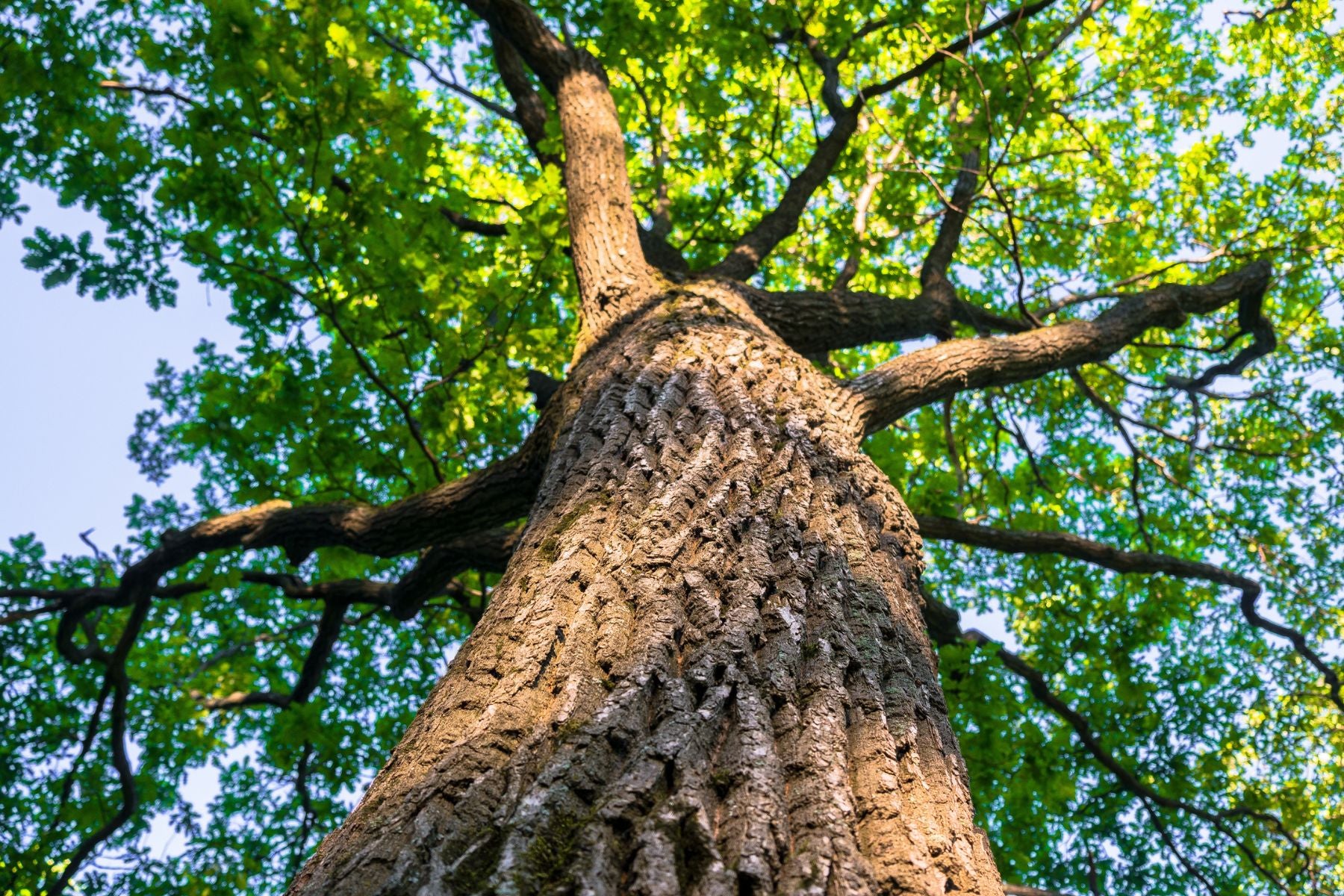You may or may not already have an oak tree on your property, but you probably don’t think much about it. Believe it or not, oak trees were once an important part of European culture and life, possibly even sacred to many. You may have heard the term “mighty oak,” but many people don’t know where it comes from. If you want to learn about the significant roles these outstanding trees played in various cultures, read on to discover the history of oak trees and why people worshiped them.
Oak Tree Origins
It’s incredibly challenging to put an exact date on a species’ origin, but it’s safe to say that oak trees have been around for quite some time. Oak trees are in the same family as chestnut trees and beech trees, and fossils indicate that the Fagaceae plant family has been around for more than 80 million years.
Although plants from this family have been around much longer than oaks themselves, fossils show evidence that oak trees have been around for close to 30 million years. Researchers found the earliest fossils providing evidence of oak trees in what is now known as the state of Georgia, meaning the US claimed it as an American tree.
Oak trees grow from their fruit, which is the acorn. Although oak trees produce many, many acorns, very few transform into trees, as they’re a common food source for wildlife.
Oak Trees and the Druids
The Druids were the intellectual class of people who were often philosophers, priests, and judges in France and Britain. Interestingly, oak trees were a significant part of their practices, and they sometimes worshiped them. The name of this group—Druids—comes from the Latin and Greek terms druides and drus, which both mean oak.
Druids believed that oak trees were sacred and directly from heaven. They performed religious rituals under them, climbed them to collect their leaves and fruits to use in medicines, and believed these trees harbored significant healing powers.
Roman and Greek Mythology
Oak trees also play a significant role in Roman and Greek mythology. Oaks were the sacred tree of Zeus and the oldest Hellenic oracle. Interestingly, priests held gatherings and offered advice or divine consultations beneath oak trees, and they believed Zeus could communicate through the oak tree.
Meanwhile, ancient Romans believed that oak trees were a symbol of Jupiter, and they also believed Jupiter passed wisdom to them through oak trees. Overall, oak trees were a crucial part of ancient Roman and Greek culture.
Baltic and Slavic Mythology
Some Slavic people believed that some of the gods they worshiped lived in oak trees, and they had various holy places in oak forests. Furthermore, the oak tree represented the world; the trunk and branches symbolized heaven and the living world, while the root system represented the underworld. In Baltic mythology, oaks are the sacred trees of the thunder god, who directs his thunder to evil spirits.
Christianity and Oak Trees
As Christianity spread across Europe, the oak tree followed. Many stories indicated that they crucified Jesus on a cross made of oak, and Christians also constructed various churches and cathedrals out of oak. Back in these early times, people built boats from various animal hides. However, Christians began building them from oak. Although Christians didn’t worship oak trees, they still used them in many ways in their religion and in daily life.
Oak Trees and Lightning
While it’s relatively uncommon for lightning to strike close to the ground, lightning is more likely to hit oak trees than any other tree. Because oak trees are very tall and have a higher water content, lightning seems to find them more frequently than other trees or structures. However, many cultures and religions believed their gods spoke to them through thunder, lightning, and oak trees.
The Symbolism of Oak Trees
The history of oak trees is incredibly intriguing, and they’re one of the longest-standing trees. Now that you know a little bit more about their role in various cultures and religions, you should also learn some of the symbolism behind these mighty trees. Follow along to explore some of the main values and concepts many people associate with oak trees to this day.
Commitment and Love
Believe it or not, the oak tree is an important symbol of love and commitment. Many people even believe they’re symbolic of the 80th wedding anniversary. Oak trees have a long lifespan, and it’s an excellent representation of the life the couple builds together, even though many couples don’t reach this milestone in their lifetimes.
Healing and Protection
As previously mentioned, the Druids believed that oak trees harbored extensive healing powers. Ancient people used parts of oak trees for medicinal purposes since the very beginning; in fact, oak is still a common ingredient in many holistic medicines. Furthermore, the Druids also believed that burning oak wood was an effective solution to protect them from harm, a practice that some carry on to this day.
Strength and Stability
You’ve probably heard the term “mighty oak” in reference to an oak tree, and that’s because it’s an incredible study tree that can withstand even the most horrendous weather conditions. The oak tree’s ability to tolerate almost anything makes it the perfect symbol of strength, stability, and power.
Knowledge and Wisdom
Many ancient cultures believed that oak trees were a vast source of wisdom and that the trees were a way for their gods would communicate with them. They hoped this knowledge from their gods and the oak trees could help them settle disputes and wars. Today, oak trees remain a symbol of knowledge.
After learning more about the history of oak trees and why people worshiped them, you may look at them slightly differently. Many people have oak trees on their property without even realizing or caring for them; luckily, these trees are very resilient and can survive different weather and climate conditions. If you don’t have oaks in your yard yet, you may want to consider buying oak trees online. Whether or not you have extensive gardening experience, you can grow oak trees—they require little care and are relatively low-maintenance additions to your landscape.



